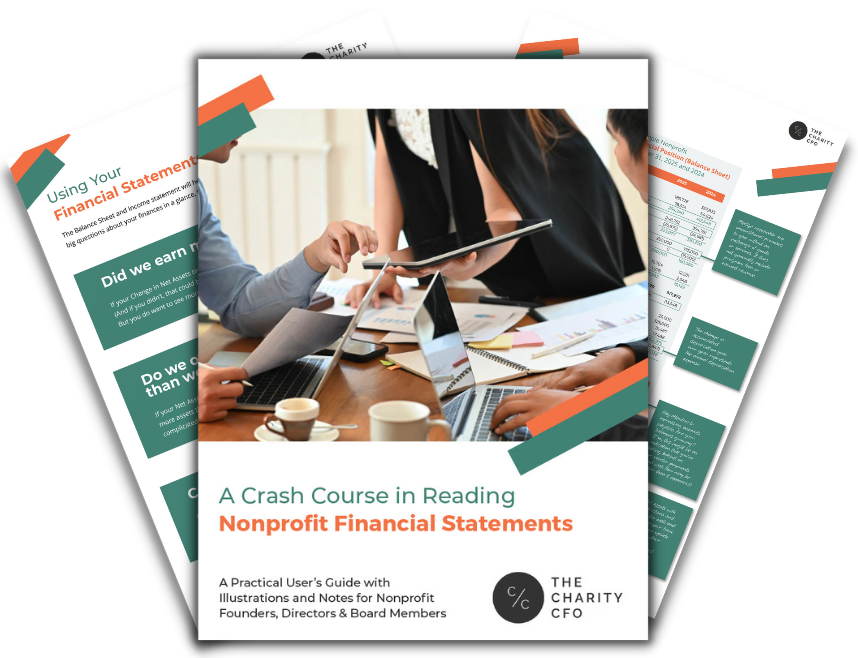Most people dread filing taxes. The piles of paperwork, long hours, and complicated tax codes can be truly overwhelming. Nonprofit leaders have an especially hard time understanding, preparing and filing their returns. They’re ever busy trying to make a positive difference in their communities, which is why tax filing often comes as an afterthought.
You see, a 501 nonprofit corporation is recognized as tax-exempt by the IRS but this doesn’t mean they are exempt from filing taxes. Most still need to file a tax return to maintain their nonprofit status and keep their organization tax compliant.
Fortunately, filing taxes for a nonprofit doesn’t need to be stressful. By following these 7 steps to nonprofit tax filing, you can sail through the process and get your taxes done quickly and easily.
Start With the Fundamentals of Nonprofit Tax Filing
Non-profit organizations operate in many areas of society, including education, healthcare, sports, and social services. While dozens of nonprofit exempt statuses exist, they generally fall under 5 types of nonprofits, including;
- Religious and church
- Charitable
- Private foundations
- Political organizations
- Miscellaneous nonprofits such as charitable risk pools, Federal Credit Unions, hospital service organizations, and retirement funds
These nonprofit categories fall under the following tax-exempt status:
- 501(c)(3): Charitable, Religious, or Educational Organizations
- 501(c)(4): Community social welfare organizations
- 501(c)(6): Business leagues, professional associations, real estate boards, and board-of-trade organizations.
Each has its own set of tax laws, regulations, and forms to fill out. As you prepare to file taxes, make sure your organization falls into the correct classification.
But why is this really important?
- To ensure that you don’t lose your tax-exempt status, which allows your organization to have an exemption from paying taxes.
- To avoid late filing penalties that can quickly add up depending on the amount the organization has received during the calendar year.
- To stay compliant with various state and federal regulations.
- To maintain good governance practices and requirements
- To demonstrate financial transparency to your donors, members, and the public
To make sure that your organization complies with the taxman, you should file IRS Form 990 by May 15 each year. This form allows the IRS and the general public to track a nonprofit’s finances, management practices, and governance structure.
The type of Form 990 to be filed depends on the gross receipts of the organization within that filing year. These forms include:
- Form 990 or 990-EZ: Filed by large organizations with gross receipts of more than $50,000
- Form 990-N (e-Postcard): Filed by small organizations with gross receipts of $50,000 or less
- 990-PF: Filed by private foundations
Take a Year-Round approach
Many nonprofits make the mistake of waiting till the last minute to prepare and file their taxes. Unfortunately, if you wait until the last minute you are more likely to make mistakes, overlook important information, and experience unnecessary stress and anxiety.
Instead, develop a year-round strategy for filing taxes that keeps your organization on track throughout the entire tax filing process. This includes:
- Tracking all income and expenses
- Making sure your accounting matches your bank statements
- Keeping up with deadlines
- Reviewing your past tax returns to identify any mistakes
- Staying up-to-date on the latest changes in tax regulations
- Preparing an accurate budget and financial statements
Tracking expenses
Tracking expenses help nonprofits to maximize their resources and solve more challenges for the communities they serve. Careful tracking also makes tax filing easier by allowing organizations to quickly find the information they need when filling out their forms.
Invest in the correct processes, policies, and technologies to ensure all expenses are tracked and recorded accurately, including:
- Reconciling all bank account and credit card statements
- Ensuring that receipts are collected for all expenses
- Run policy checks on specific project expenses
- Categorizing each expense correctly
Tracking Revenue
Another measure to avoid stressful filing is by keeping up with the organization’s revenue streams. NPOs should track all donations, grants, and investments made to their organization to make sure they are properly accounted for.
Nonprofits should also keep records of when these donations are made and what type of payment was accepted (cash, check, or credit card). This will help when preparing the tax returns, as well as ensure that donations are properly recognized and acknowledged.
You’ll also need to understand how and when to recognize different revenue streams. Proper revenue recognition is a core accounting principle that ensures proper financial reporting, ensuring that you remain compliant and maintain donor confidence.
Monthly Financial Reporting
Maintaining accurate and timely financial reporting is one of the most effective ways to keep your organization in compliance and ready for tax filing.
Monthly financial statements can have a clear view of your financials and stay on top of your organization’s future expenses. This complete visibility of financial information at all times is necessary to maintain a strong cash inflow and help make informed economic decisions.
According to GAPP, some of the most recommended financial reports that you should generate monthly include:
- Statement of activities
- Statement of cash flows
- Statements of financial position
- Statement of functional expenses
- Donor reports
- Marketing reports
Pay Quarterly Estimates
Most nonprofits do not have to pay federal or state income taxes, but they may still have to pay quarterly estimates if they engage in activities that generate unrelated business income.
According to the IRS, a nonprofit organization must pay quarterly estimated tax on unrelated business income if it expects its annual tax to be more than $500. This Unrelated Business Income Tax, or “UBIT”, is calculated on the organization’s net income from unrelated activities and is due each quarter.
Use Form 990W to determine your estimated tax payments. It’s important to ensure that your organization is paying the correct amount of taxes each quarter. Failing to pay estimated taxes on time can result in huge interest and penalties that could jeopardize your nonprofit’s financial health.
Work with a Trusted Expert for Peace of Mind
Filing taxes for a nonprofit organization can be challenging, time-consuming, and worst of all, stressful. You don’t want to make any mistakes that could trigger an audit or even the loss of your 501(c)(3) status.
That’s why it’s important to work with an experienced tax professional who understands the specific needs of nonprofit organizations. A trusted expert can help guide you through the filing process and make sure all of your documents are accurate and complete.
At TheCharityCFO, we have experienced professionals that help nonprofits just like yours stay on top of their taxes and meet filing deadlines. Our team can provide comprehensive tax and financial guidance to help your organization remain in compliance with all state and federal regulations.
Contact us today to learn more about our services and how we can help you achieve peace of mind with your nonprofit’s tax filing.

Do You Struggle to Make Sense of Your Financial Statements?
Get our FREE GUIDE to nonprofit financial reports, featuring illustrations, annotations, and insights to help you better understand your organization's finances.
Get the free guide!



0 Comments